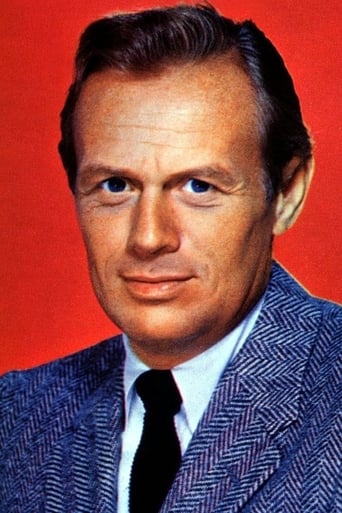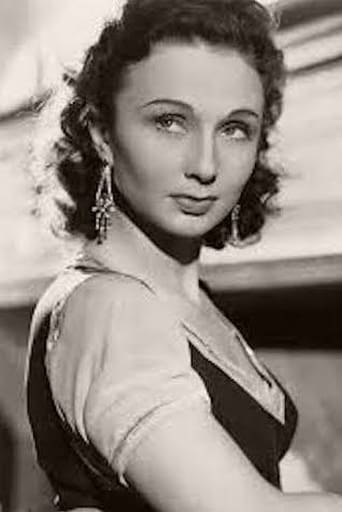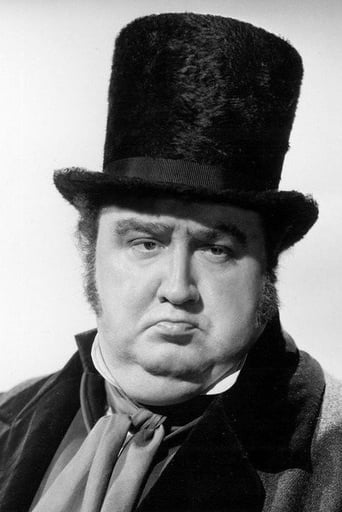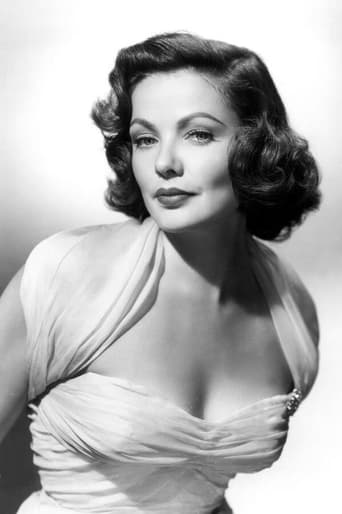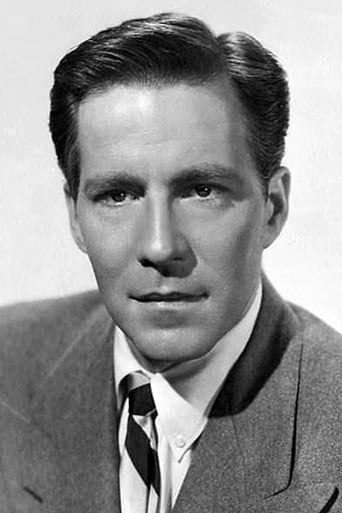KnotMissPriceless
Why so much hype?
BelSports
This is a coming of age storyline that you've seen in one form or another for decades. It takes a truly unique voice to make yet another one worth watching.
Kien Navarro
Exactly the movie you think it is, but not the movie you want it to be.
Mathilde the Guild
Although I seem to have had higher expectations than I thought, the movie is super entertaining.
martijn-56
Wonderful movie; good acting, meaningful plot, and film noir ending, but still storywise a missed opportunity of greatness.Spoilers ahead:Why did the scriptwriters not opt for the following: letting the main character get it all: the ultimate wrestling match, only to witness the death of the old master wrestler Gergorius (Stanislaus Zbyszko) afterwards?
The character Harry Fabian (Richard Widmark) would really have had it all: fame, fortune but also the ultimate bad luck. Gregorius' son would want to revenge him, as in the movie but only later. In this scenario Fabian could have offered something in his sacrifice, namely his fortune to his girlfriend before dying at the hands of gangsters hired by the son of Gergorius (Herbert Lom). That would have been a powerful ending, also showing how fickle fame and fortune is, how the tide can change even after you think all is settled.
It could still have given the subplot to make Fabian fight for the money with Philip Nosseross to get the match, but it could have been a smaller part of the movie.
Instead, the movie chose to let Gergorius die early in a fistfight without public, making clear there would never be a fight, and putting too much emphasis on a manhunt of Harry Fabian. It basically prematurely killed the movie and the ending, since the girl got nothing in the end. Or maybe it just was not my taste, since after all this was the ultimate noir ending, with no happy endings for anyone.
krocheav
This film was either ahead of its time, or today's copycat films are way behind. Director Jules Dassin, one of the 'born in the USA' crew was hunted out of his homeland by his own contemporaries for 'comunistic' political leanings. Here we see him at work in the UK and angry at everyone.In 'city' he's working with Screenwriter and fellow American Jo Eisinger. Eisinger tends to excel writing about psychologically driven characters and 9 yrs later would co-write the screenplay for the rare (possibly now lost) but worth looking for German film "As The Sea Rages" Berlin born Director of Photography Max Green (Thunder Rock '42 - Hatters Castle '42) has, under direction of Dassin, created what ranks as one of the most visually striking 'Noir' films to date. It would be interesting to know who called what shot as there are many classic Dassin stylistic touches throughout this collaboration.It's just a pity the characters don't hold more interest. Peopled with 98% despots, has beens, and morally bankrupt no-hoper's, there's no-one to identify with unless you fit into the same crowd. The revealing German title: "The Rat of Soho" summed it all up aptly! The only halfway decent character is played by Gene Tierney, then even she works for the super shady 'Silver Fox' establishment. Ms Tierney's role is a token part but she's very good with it and her character is integral to story. This is possibly the role Richard Widmark was born for (even though he may have been wanting better characters to play) as Harry Fabian he is practically the whole show, and unfortunately in Hollywood when you're this good at being bad, your stuck with it!Exeptionaly good also, are the many strong British players that pepper this grueling watch. There seems to be a marked absence of the British 'Bobby on the beat' or other Law officers (even though everyone seems to be constantly running through the cities streets) perhaps, this aspect gives a misrepresentation of Britain at the time.Starting right from the opening of the 20th Century Fox trademark (minus the famous fanfare) the music commands your attention with powerful orchestral statements complete with Bells. This to me sounded like it could have been a remnant of the British version with its score written by Benjamin Frankel (Frankel did a similar thing under the Columbia trade mark of his '55 film "The End Of The Affar" to equally dramatic effect) The score then tends to change to what could be a more up tempo piece by Franze Waxman, composed for the American release. It's fairly obvious the descriptive incidental music by Waxman had set the tone for several other film score composers who followed during the latter 50's - 70's. The British version has been restored by the B.F.I. and would make for interesting viewing at 6mins longer. Much lauded 'modern' film makers such as Scorsese, Tarantino, among others throughout the world, grew up on these films and are constantly copying this, and other similar works, but they too have dumbed down the genre with flashy techniques, ultra gore and crude language to hide the fact they are often working with empty characters, below average scripts and situations, leaving little doubt that their possible intentions are simply to glorify ugliness because they sadly enjoy it.'City' is seductively good to look at, while it may not be completely satisfying to some, 'Moderns' may have more chance of enjoyment because they may have had little else to compare it with.
felixoteiza
Allow me to sound pretentious and say that there are two kinds of people who judge and analyze movies: critics and reviewers. A critic is someone highly educated on the matter, an individual who may hold several pertinent degrees and who will judge a film mainly for its artistic value, regardless of having to consider at the same time the possibility that not even 00.1% of the general population may be interested in watching it. A reviewer, on the other hand, is someone with a more or less average degree of film education who'll try to put together both ends, providing a verdict about the general "watch-ability" of a flick while trying at the same time not to neglect its artistic value. I consider myself a reviewer and that's why I usually give a basic 7/10 to movies that I consider entertaining enough to recommend to anyone--like Anchorman for ex., not precisely an art house regular but one which most people will enjoy watching simply because it's funny. Another one that comes to mind is Stalker, about which critics rave but which I don't consider of any interest for the average viewer. Why I'm saying all this? Because NATC provides the best ex. of a great piece of cinema that will never reach a wide audience because, despite its indisputable artistic merits, it contains flaws that will make it forever a film only for the noir aficionado; the first one of these flaws being the lack of what I would call a "hook". And what's a hook?.See, being the noir genre a very formulaic one—-where everyone and their dog end up dead, in prison, broke, on the lam or at least sad & lonely—each noir has to offer something different, original, to make the general viewer forget that deja vu feeling. Two examples illustrate this well, the best one being Panic In The Streets. Here the bad guy is not a human but a lethal germ which some criminals on the lam are carrying and who Dr. Widmark has just 48 hr. to locate and neutralize. Talk about not one but two hooks! Where The Sidewalk Ends has, as a hook, the cop himself being the son of a gangster; and also he having to conceal his killing of a suspect. Again, not one but two hooks. Maybe now you'll understand why NATC is so "underrated" and why has never reached a wider audience: because it got no hook! (even critics recognize that when stating that, from the very first shots we know that Fabian will be dead by the movie's end). One reviewer offered a different POV that leads anyway to the same conclusion, when writing that the problems of these characters do not come from fate, bad luck, but as the logical consequence of their own personal flaws. We can go even further in the deconstruction and say that there is absolutely nobody here, men, woman, who is being forced to stay in their situation. All of them are free to walk at any moment out of their bad relationships, deals, which is the best way to detect a loose plot. Already we got two flaws and that's only the beginning. Fact is, despite NATC being a great piece of cinematography it lacks what's needed to keep you on the edge of your seat: the underlying tension, the expectations for the shocking or the unlikely to happen. For ex. compare the situation of the two good people here, Gregorious and Mary--who could have walked at any time out of their problems--with that of the characters in the noirs I mentioned, none of which had any choice but to face the situation they were in. That's what makes of these pretty exciting movies to watch while NATC is not. As the reviewer said, you cannot relate to people who are in a mess of their own doing--and from which they can extricate at any time, I'll add. NATC has no real pathos, not Damocles' sword hanging over the head of the characters, except of course that put there by their own greed, loyalty or disloyalty, stupidity, etc. Harry is pathetic, yes, but we don't truly care for him and we can sit back and marvel at his capacity to poison everything he touches. The only one nearly producing some kind of pathos is Gregorious, with his undying passion for Greco-Roman wrestling.As I have neglected about the plot, let's simply say that it's about (very) small time hustler Harry Fabian, U.S. expatriate in London in the early 1950s, who's always concocting ways to swindle people and who finally thinks he got the break of his life when a former wrestler—Gregorious-—comes his way, giving him the opportunity to start a career as a promoter. But money is needed and it is trying to get this money that Harry manages to ruin the life of everyone around him, including his own. As I said, the lack of tension comes from the fact of Harry being a highly unlikable character--I don't know where critic(s) got the idea of him being touching or likable--and that we know from the beginning that he won't outlast the movie. So, while the cinematography is very good, there's little meat for those viewers who use to silently whisper to filmmakers, when sitting to watch their flicks: "Surprise me". There are some good scenes, though, the best one showing an intense wrestling match between Zbyszko's Gregorious and Mazurki's Strangler and then the old fighter, who had spent all his energies in winning it, dying on his son's arms. They both make for the most climactic part in the movie. In all, recommend only if you are really into noir. I say 6.5/10, but make it a 7/10 if you really consider Gregorious' passion for traditional wrestling a hook.
popcultureatemymonkey
O.K. kiddies The Monkey has a terrific one for you today. It is a superb late Film Noir from England called Night And The City. Now, part of the reason The Monkey is such a bastard half the time, is because he watches way too much Noir. I mean here is a genre that screams ' it does not matter what you do, because you're screwed anyway' with a super happy fun-time sub-theme of, the harder you try to claw your way out, the further back you will find yourself.Night And The City is directed by the masterful Jules Dassin, who also directed the equally impressive noir The Naked City as well as two of the originators of the heist genre, Riffi and Topkapi. Dassin was blacklisted while he was shooting Night And The City, and let me tell you any person that is held suspect by THE MAN is my kind of people.Night And The City is about a two-bit bar hustler named Harry Fabian (Richard Widmark, my favorite Noir actor), who stumbles upon a plan to corner the market in wrestling. Unlike his numerous other schemes, this one just may work. Arrayed against him are the principal mobster in London Kristo (the appropriately shady Herbert Lom), Fabian's lover Helen Nosseros (Googie Withers), and his business partner (and Helen's husband) Philip Nosseross.One of the highlights of Night And The City is the cinematography. Unlike many Noirs where low-key light is simply a method representative of film noir, and the city is its setting, Night And The City imbues them with a living palpable menace. The darkness is not just a lack of light, but instead comes from the dark souls of those with whom Fabian has surrounded himself. The darkness shrouds the many dangers of Fabians own dark and exploitative nature. It also hides the assassins after Fabian, more than it hides him. It is in the darkness that Harry drags himself, and all those around him, to their inevitable demise.In other Noirs, there is often the false belief that protagonist can get ahead if he just leaves the city. Often they do, and their deeds follow them. In Night And The City, there is no such hope for Fabian. London is his prison, and its tenement's and towers only force him onward, onward, in his mad dash towards his hoped for impossible escape from the city. These hopes of escaping across the Thames by boat or by bridge are thwarted by the opportunistic waterfront thieves and swindlers he had once called his friends, the bridges guarded by thugs in the employ of Kristo.Night And The City also makes a fun drinking game. The rules are easy, every time someone uses a derivative of the phrase "You're a dead man" to Fabian you take a drink. Now The Monkey can't recommend this as you are likely to pass out long before the conclusion of the film. That is unless of course getting blind stinking drunk is your goal. Whatever your plan may be, I urge you to watch this movie as soon as you can. If nothing else, it will make all of your troubles seem trivial compared to those of Harry Fabian.



